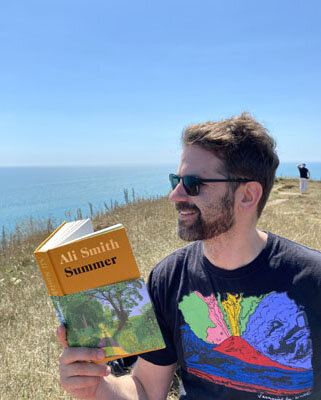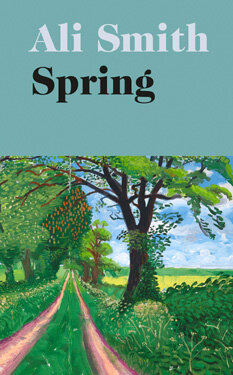When “Convenience Store Woman”, Sayaka Murata's first novel to be translated into English was published a couple of years ago it became a cult hit with many enthusiastic fans (including me!) She was already a well-established writer in Japan having published ten books and won multiple prominent literary awards. Now more of her books are being translated into English including “Earthlings” which explores a lot of this author’s familiar themes such as alienation and societal pressures but the story dramatizes them from a surprising new angle and contains more shocking twists. The novel centres around Natsuki, an adolescent girl who develops a strong bond with her cousin Yuu as the pair believe they are aliens who've come from a planet called Popinpobopia. Many years later Natsuki forms an unconventional marriage with a socially awkward man named Tomoya. They refer to society as The Factory wherein they are expected to function as mechanical parts by creating babies and serving specific functions: “Everyone believed in the Factory. Everyone was brainwashed by the Factory and did as they were told.” To escape this fate, the pair travel to Natsuki’s remote family home Akishina where they create a new connection with Yuu and try to establish a way of being outside of social expectations.
Murata’s writing is so compelling in the way she gives voice to outsiders - people who don’t quite fit into mainstream society and feel they must grudgingly obey unwritten social rules in order to survive. It makes it very easy to relate to the author’s central characters who take a weary view of people who do excel at being model citizens. For instance Natsuki observes of her friend Shizuka that “She had always been exemplary in learning to be a woman, truly a straight-A student. It looked excruciatingly tiring.” There’s an implicit humour in this wry view of others, but there’s a distinction between being socially-awkward and a sociopath. Murata’s characters tread that line and this makes her plots so compelling because it feels like at any moment the story might stray into violence, tragedy and madness.
This novel also exposes the hypocrisy of living in a patriarchal society where the authority of a good-looking man is valued over the testimony of an adolescent girl. During Natsuki’s childhood, her handsome teacher Mr Igasaki takes a predatory interest in her. However, nobody believes Natsuki’s account especially not the other women in her life – not even female friends she confides to in her early adulthood. It compounds her feelings of being an outsider and makes her even more mistrustful of following the expectations which are placed upon her.
Many will be shocked by the extremes this novel goes to. The ending of “Earthlings” is really wild and it’s likely to divide the opinions of different readers. Like with the novel “A Little Life”, I think many readers who initially feel sympathetic to the characters and story might become repelled by how far the author goes. In some ways, I found it frustrating as it does feel like Murata sacrifices a consistency with her characters for the sake of shock value. The attitude of Natsuki’s cousin Yuu changes very quickly and her husband Tomoya’s fear of physical contact is abruptly abandoned. But I don’t think this is simply a case of the author prioritizing a rhapsodic plot over the integrity of her characters.
There are a number of different interpretations you could make about the ending. It could be viewed in the realms of pure fantasy where the characters are what they believe they are. It could be seen as a form of joint hysteria. Or you could interpret it as a very intense example of how people will sometimes do terrible things to alienate themselves from society in order to violently free themselves from its rules. When his family try to take charge of him Tomoya desperately seeks a way to do something so shocking he’ll be permanently outcast. Similarly, at the end the trio go so outside the realms of convention they are absconding from any hope of being integrated into normal society again. It could be viewed as a radical form of liberation.
In some ways “Convenience Store Woman” felt like a more restrained and accomplished novel with hints of potential horror – whereas “Earthlings” tips into full-blown terror as its protagonists become lost in fantasy and violence. But it’s fascinating how this novel gives an interesting perspective on feelings of alienation. It’s common to imagine oneself as having been born in the wrong time or place when feeling crushed by expectations which go against one’s instincts. Here the characters really believe themselves to be aliens, but because we’re so entrenched in their perspective it’s so-called conventional people who come to seem like aliens with their banal rituals and rigid expectations. Murata inventively traces the way different outsiders cope by submitting to, rebelling against or escaping from the dominant ideologies of a society they are forced to live in. It makes for a vivid, thrilling and thought-provoking reading experience.

























